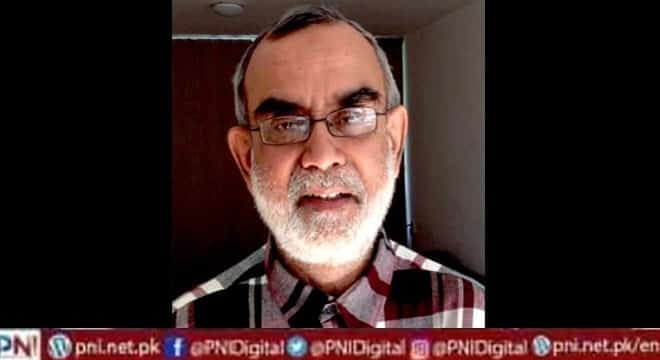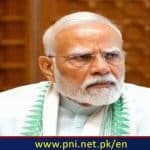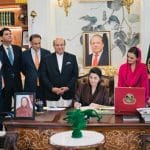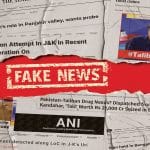When Imam Hussain (AS) was leaving Mecca for Kufa, he came across a poet Hammam Ibn e Ghalib, also known as Farazadaq. Imam met him at manzil e Sifah. Imam asked him “what do the people of your city think about me”. He said, “their hearts are with you but their swords are with your enemy”. This condition provides ground for oppression and tyranny to continue. It continues to this day. According to Allama Jawwad Naqvi, a broader interpretation of power would include the power of wealth, knowledge, influence, oratory, and in modern days media and vote also. Imam knew the weakness of the community of faith at that time. He decided to take the brunt of fighting tyranny on himself and his family and gave freedom to his faith community to join or leave him. He wanted them to see the consequences of siding with the truth or personal security and make an authentic choice. He wanted fellow Muslims to realize that material comforts are an illusion and siding with the truth is the source of eternal bliss. He decided to fight tyranny with truth, patience, and courage.
Imam understood the root of the conflict between the hearts and actions of people. He knew that this condition was universal and he had to show the way to overcome this condition. Therefore, Imam’s path to deal with tyranny is also of universal importance. During the period of the industrial revolution, Karl Marx also noticed this paradox and came up with the formulation that social being determines consciousness. He meant that people like the truth but put their weight behind their material interests instead of the truth. So his response was not to fight tyranny by reforming the self, by gaining better self-awareness by moral power but by revolutionary violence against tyranny and injustice. Unlike Imam Hussain, he did not believe in the power of the inner spiritual core of people. He believed that once the working class captures power it will convert mass morality with the use of state power. It did not happen in the case of the socialist experiments in the Soviet Union and China. A new individual with new values is created with knowledge, not power. True knowledge begins with self-knowledge. Universal human values of fraternity, solidarity, justice, and compassion have to be rediscovered and reimagined and practiced by every society. These values have to be taught with compassion and nurtured with patience.
In the 20th century, Syed Abul Ala Maudoodi borrowed from this Marxian formulation of dealing with injustice and capturing state power to create a morally responsible society. His diagnosis of the moral deficit of Muslim societies based on his rational analysis was correct. But this analysis missed the point that people who choose to side with the faith of the powerful in reality believe in the morality of power not the morality of justice. Justice is taught through personal example, hardships, sacrifices, and courage to become vulnerable, not through the power of gun. In moral education, the most important first step is to let people become aware of their inner potential and take responsibility for their individual actions. This self-reformation cannot be done by the state on behalf of the individuals. The limitation of ‘rational’ social sciences and formal religion is that they don’t see the power of the human spiritual reservoir for making lasting changes. Any social change that rides on the power of guns becomes hostage to the power of guns. The most difficult battle is the battle against narrow self-interest and it begins at the personal level.
Brute power can silence the messenger but cannot silence the message which keeps resonating in the hearts of people in love with the truth. Ordinary people can succumb to external pressure for a short while but they will rise and mend their ways sooner or later. Imam had hope in Allah’s mercy and the basic goodness of people. Hope carries more power than swords and guns. Allah’s grace and mercy are eternal and hardships are temporary. Our world has heard the diagnosis of the human condition in the voice of Farazdaq but we can find hope in the life of the Imam. It is not by creating structures alone but by following the path that we nurture truth. The word for the path is Tariqah.
Follow the PNI Facebook page for the latest news and updates.









